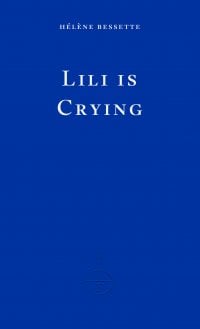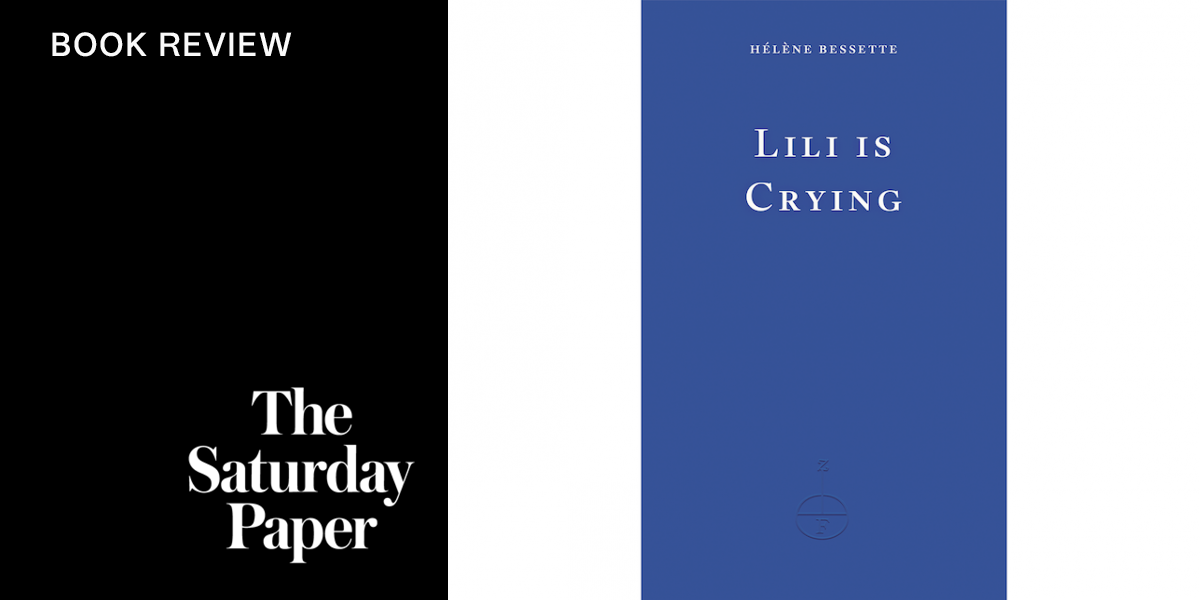Originally published by Gallimard in 1953, Lili Is Crying is a small novel, the first of Hélène Bessette’s works to be translated into English. At the time Bessette was 35, divorced with children and developing an innovative writing practice she called the “roman poétique”. In the late 1940s she lived in Sydney, working at the Colgate-Palmolive factory in Balmain; in France, she took up teaching and housekeeping to support her writing. When she died in 2000, Bessette was impoverished and forgotten, her 13 books – including La Route Bleue, set in Australia – out of print. As early as 1964, Marguerite Duras wrote of deeply regretting “the silence surrounding the publication of her novels”.
Lili Is Crying – set in Provence between the wars – is about the desperate, electric relationship between a possessive mother and her daughter. Charlotte is the shrewd proprietress of a profitable boarding house. It seems the going is good, but it’s also a season of ruin. The young Lili, the titular crier, suffers under her mother’s fanatical control. “Everyone has a mother, but we don’t all smash up our lives for her sake,” complains her lover. Starry-eyed, Lili absconds with one young man and then takes up with another. Her decampment seems a necessary betrayal of Charlotte, whose rancour and bitterness excite a plot of deceit, lies, misery, shame and tears. “Girl turned out badly. Girl gone crazy,” thinks Charlotte. Lili is optimistic: “Things never happen to me the way they do to other people. My life, it’s a whole novel.”
What makes a novel? Bessette’s crackles with disobedience, advancing waywardly across the page, her style compressed, fragmented, repetitious. Chronology is dropped, time scattered in the dust. The small unit of the sentence becomes a crucial marker of duration and simultaneity. What makes a day, a life? Lili has an abortion, war breaks out, her husband is interned in Dachau. These events are introduced lightly, jumbled asides that blanch the novel of any bourgeois cosiness. Formally, thematically, it is a book about submission and dominance – the tension between various plots, between mothers, daughters, husbands. “Show me a woman who’s chosen something,” says Lili. Bessette uses the tiret, or dash, to indicate both acts of speech and inward talk. In a feverish, choral narration that collects the voices of Lili, Charlotte and other village wives, we glimpse a world of secret thought, sneaky gossip and chatter that reforms and deforms social bonds and hierarchies.
Bessette’s book is as bracing and coarse as the mistral that blows through it. Everything is reduced to something elemental. “The novel is taking its leave / gently / Like a fire going out / like a fire going out / like a fire going out,” writes Bessette. Her work is remarkable and alive.
Fitzcarraldo Editions, 192pp, $26.99
This article was first published in the print edition of The Saturday Paper on
September 13, 2025 as “Lili Is Crying”.
For almost a decade, The Saturday Paper has published Australia’s leading writers and thinkers.
We have pursued stories that are ignored elsewhere, covering them with sensitivity and depth.
We have done this on refugee policy, on government integrity, on robo-debt, on aged care,
on climate change, on the pandemic.
All our journalism is fiercely independent. It relies on the support of readers.
By subscribing to The Saturday Paper, you are ensuring that we can continue to produce essential,
issue-defining coverage, to dig out stories that take time, to doggedly hold to account
politicians and the political class.
There are very few titles that have the freedom and the space to produce journalism like this.
In a country with a concentration of media ownership unlike anything else in the world,
it is vitally important. Your subscription helps make it possible.

Purchase this book
Lili Is Crying
When you purchase a book through this link, Schwartz Media earns a commission.
This commission does not influence our criticism, which is entirely independent.
Send this article to a friend for free.
Share this subscriber exclusive article with a friend or family member using share credits.
Used 1 of … credits
use share credits to share this article with friend or family.
You’ve shared all of your credits for this month. They will refresh on October 1. If you would like to share more, you can buy a gift subscription for a friend.
SHARE WITH A FRIEND
? CREDITS REMAIN
SHARE WITH A SUBSCRIBER
UNLIMITED
Loading…



